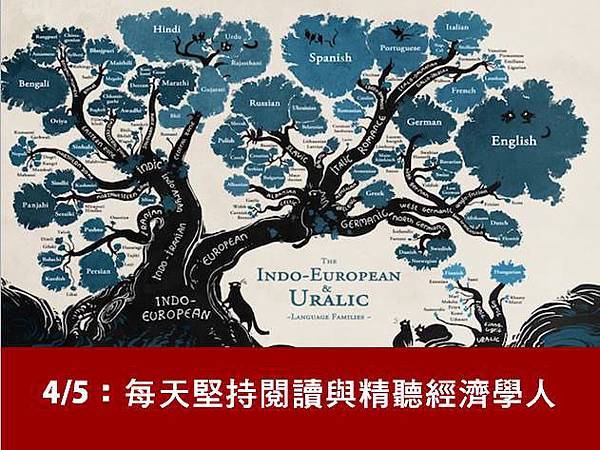 今日主題:The theories of the world's best - known linguist have become rather weird 世界最知名語言學家提出了更詭異的理論 (上)
今日主題:The theories of the world's best - known linguist have become rather weird 世界最知名語言學家提出了更詭異的理論 (上)
 康康精選GRE&GMAT會考的主題,堅持每天精讀一定會進步的哦!!
康康精選GRE&GMAT會考的主題,堅持每天精讀一定會進步的哦!! MP3音檔 (按右鍵可下載聽):喜歡的同學,幫忙推或按讚哦~~
MP3音檔 (按右鍵可下載聽):喜歡的同學,幫忙推或按讚哦~~
http://xia2.kekenet.com/Sou…/2016/…/ecow04011_1048553FL6.mp3
 只有音檔怎夠,聽不懂地方,不用怕,康康幫你準備好中英文稿了:
只有音檔怎夠,聽不懂地方,不用怕,康康幫你準備好中英文稿了:
 中英文稿:
中英文稿:
The theories of the world's best - known linguist have become rather weird
世界最知名語言學家提出了更詭異的理論
FEW disciplines are so strongly associated with a single figure: Einstein in physics and Freud in psychology, perhaps. But Noam Chomsky is the man who revolutionised linguistics. Since he wrote “Syntactic Structures” in 1957, Mr Chomsky has argued that human language is fundamentally different from any other kind of communication, that a “linguist from Mars” would agree that all human languages are variations on a single language, and that children's incredibly quick and successful learning ( despite often messy and inattentive parental input ) points to an innate language faculty in the brain. These ideas are now widely accepted.
很少有學術領域能如此緊密地與某個人掛鉤:就像愛因斯坦之於物理學、弗洛伊德之於心理學,而諾姆•喬姆斯基則徹底改革了語言學。自從其著作《句法結構》於 1957年問世以來,喬姆斯基一直認為人類的語言與其他任何交流方式有著本質的不同。“來自火星的語言學家”可能會同意所有的人類語言最初都是由單一語言 變種而來,而兒童之所以能夠快速地學會一門語言(儘管有時候家長會無意教些亂七八糟的東西)則都歸功於大腦中天生的語言機制。這種觀念已經被廣泛接受了。
Over the past 60 years, Mr Chomsky has repeatedly stripped down his theory. Some aspects of human language are shared with animals, and others are part of more general human thinking. He has focused ever more narrowly on the features of language that he reckons are unique to humans. All this has led to a remarkable little book, published late last year with Robert Berwick, a computer scientist. “Why Only Us” purports to explain the evolution of human language.
在過去的60年中,喬姆斯基不斷地在精簡自己的理論。人類語言的某些方面與動物類似,而其餘的則來源於人類的思考。他一直專注於研究人類語言中獨一無二的 特性,並於去年與計算機科學家羅伯特•貝里克合著了一本名為《為什麼我們是唯一的》的書,書中解釋了人類語言的進化歷程。
Other biologists, linguists and psychologists have probed the same question and have reached little consensus. But there is even less consensus around the world's most eminent linguist's idea: that a single genetic mutation created an ability called “Merge”, in a single human whom Mr Chomsky has called “ Prometheus ”, some time before the human exodus from Africa. That mutation was so advantageous that it survived and thrived, producing today's 7,000 languages from Albanian to Zulu. But the vast differences among the world's languages, Mr Chomsky argues, are mere differences in “externalisation”. The key is Merge.
雖然其他各路生物學家、語言學家和心理學家也一直在探尋這個問題,卻並沒有達成多少共識。然而對於語言學中最著名的理論則分歧更大—在一個喬姆斯基稱之為 “普羅米修斯”的人中,一次單一的基因突變創造了“合併”的能力,而當時人類還沒有遷徙出非洲。該突變如此強大,在之後的歲月中存活並繁衍,創造出如今從 阿爾巴尼亞語到祖魯語的7000種人類語言。而世界各種語言中存在的廣泛差異,喬姆斯基認為這只不過是外在的區別,核心仍然是“合併”。
But what is it? Merge simply says that two mental objects can be merged into a bigger one, and mental operations can be performed on that as if it were a single one. The can be merged with cat to give a noun phrase, which other grammar rules can operate on as if it were a bare noun like water. So can the and hat. Once there, you can further merge, making the cat in the hat.
但“合併”到底是什麼?是兩個精神客體互相融合成一個更大的,如果這是一個單一個體,就能產生各類心理活動。“The”與 “cat”合併就能組成一個名詞短語,如果只有一個名詞(例如” water ”)從語法規則上來說也是可以的。“The”與 “hat”的組合也同理。之後,你可以進一步合併更多的詞 “the cat in the hat”。



 留言列表
留言列表
